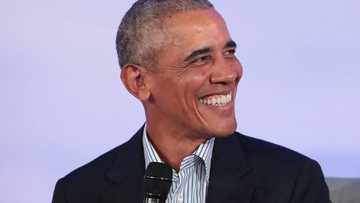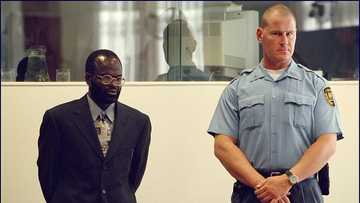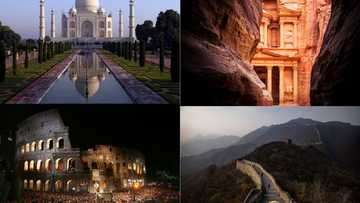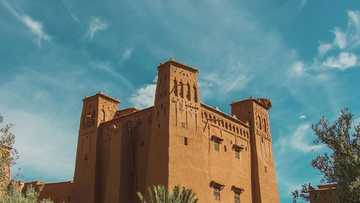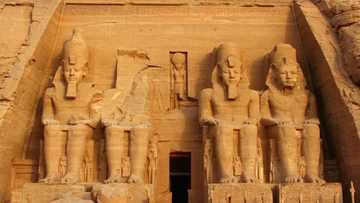12 of the most famous kings of all time and their fascinating stories
For history and government lovers, the discussion surrounding famous kings is fodder for an exciting conversation. In ancient times, these rulers established their dominance by expanding their territories as far as possible. Although some kings fought for greatness, others inherited power. This article highlights popular kings who made history in one way or another.
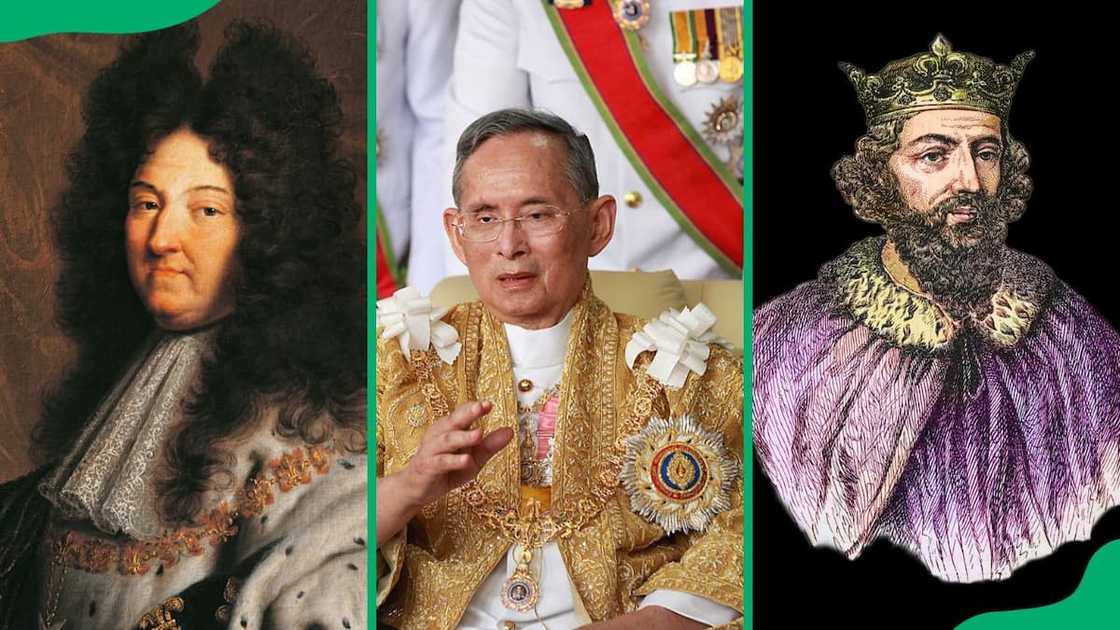
Source: UGC
Kings were the supreme rulers of their respective domains. Due to their immense authority, they played critical roles in moulding the history of kingdoms, dynasties and the world.
Most famous kings in history
Who was the most prominent ruler of all time? From Alfred the Great to Louis XIV, here are some notable figures whose legacies have stood the test of time, making them iconic symbols of kingly rule.
1. Alexander the Great
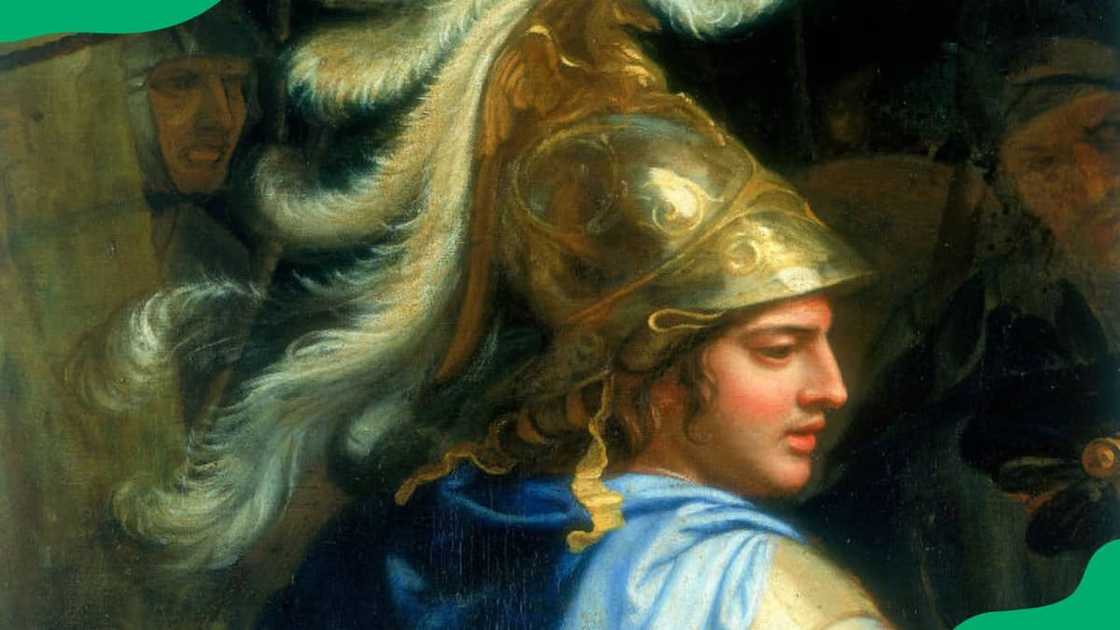
Source: UGC
Alexander the Great is one of the most famous kings in history. He ruled the Macedonian empire in ancient Greece from 336 BC to 323 BC.
At age 20, Alexander succeeded his father, Philip II, to the throne. He spent most of his ruling years conducting a military campaign throughout Western Asia and Egypt.
By age 30, the ruler had established one of the largest empires in history, stretching from Greece to northwest India. Alexander is widely regarded as one of history’s greatest military commanders because he remained undefeated in war.
2. Bhumibol Adulyadej
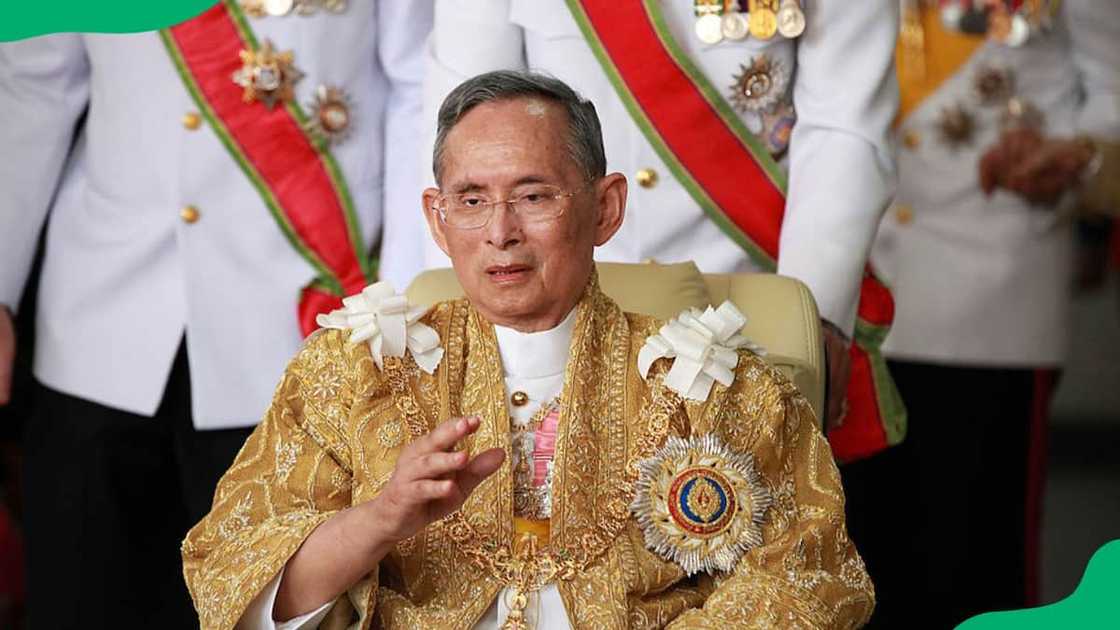
Source: UGC
Bhumibol Adulyadej was the ninth crowned head of Thailand from the Chakri dynasty, known as Rama IX. Ruling from 1946 until he died in 2016, Adulyadej is the third-longest reigning emperor worldwide after Queen Elizabeth II and King Louis XIV, serving for 70 years and 126 days. He topped Forbes’ list of the world’s wealthiest royals from 2008 to 2013.
3. Ramesses II
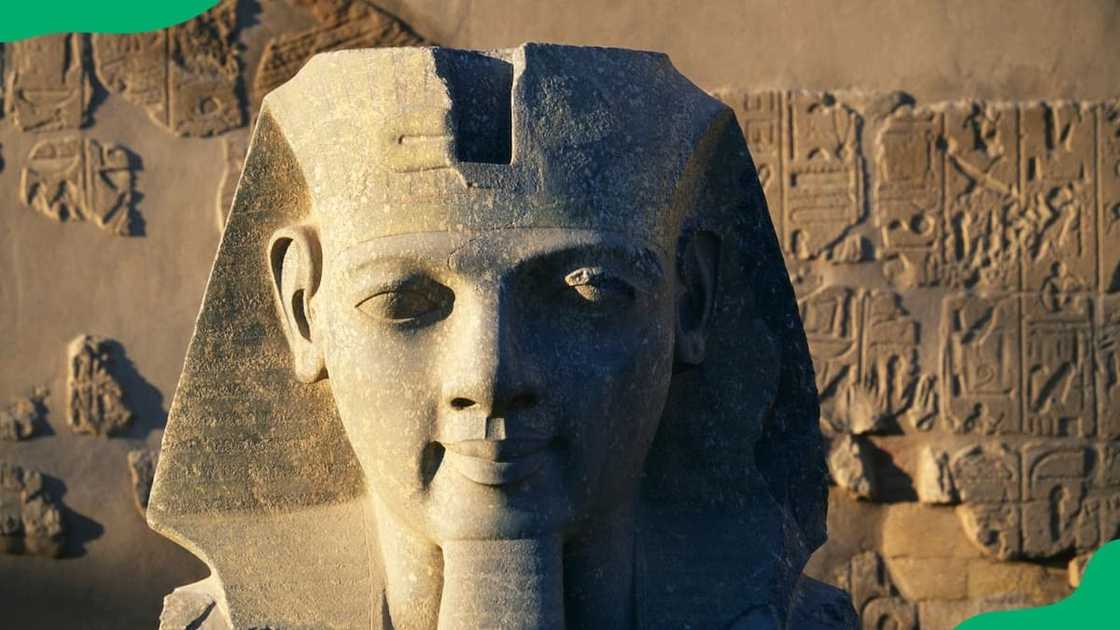
Source: UGC
Ramesses II was an Egyptian pharaoh who was the third ruler of the Nineteenth Dynasty. He is dubbed the greatest and most powerful pharaoh of the New Kingdom. In addition, the ruler is considered Egypt’s most successful warrior pharaoh after winning no fewer than 15 military campaigns.
During his reign, he established the city of Pi-Ramesses in the Nile Delta and designated it the new country’s capital. The city served as the main staging point for his campaigns in Syria.
4. Alfred the Great
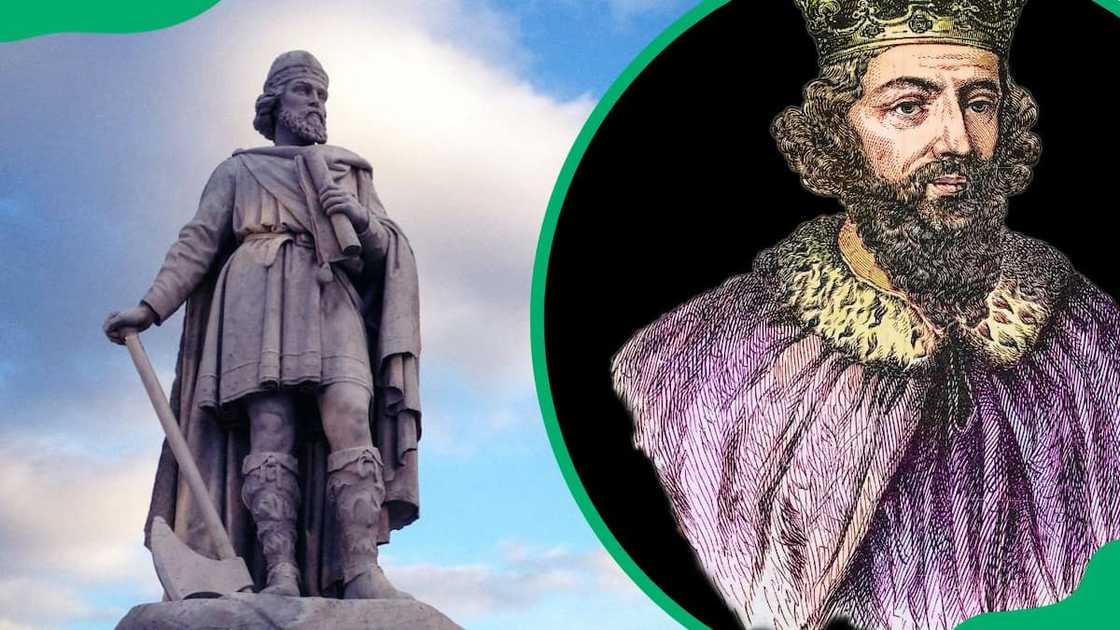
Source: UGC
Alfred the Great ruled the West Saxons from 871 to 886 and the Anglo-Saxons from 886 till his demise in 899. Under his reign, various administrative and military reforms were introduced in England.
He spent years fighting the Viking invasion. The ruler had a reputation as a merciful and learned man who proposed that primary education should be taught in English rather than Latin to improve the living standards of his people. He is the only English monarch with the epithet ‘’the Great’’.
5. Abbas the Great
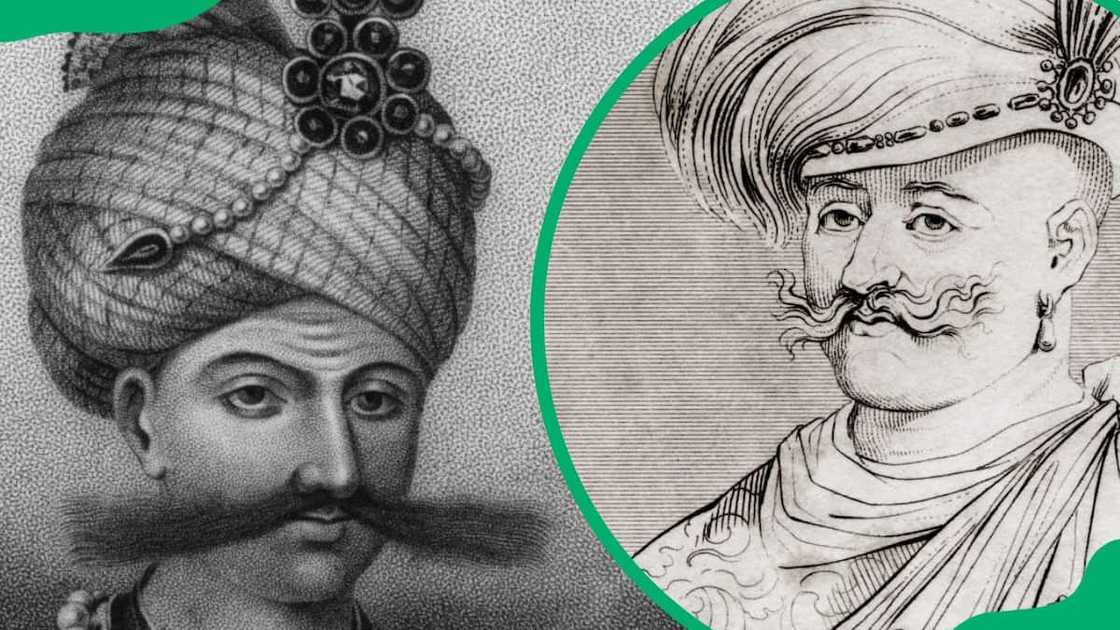
Source: UGC
Abbas the Great ruled Safavid Iran as the fifth Shah from 1588 to 1629. He is regarded as one of the greatest monarchs in the Iranian past and of the Safavid family.
Iran established the ghilman system during his authority, where countless Armenian, Circassian, and Georgian slave soldiers enlisted in the civil government and military. In his later years, following a conspiracy to overthrow him, Abbas became suspicious of his three sons and had them blinded or killed.
6. Askia Muhammad 1
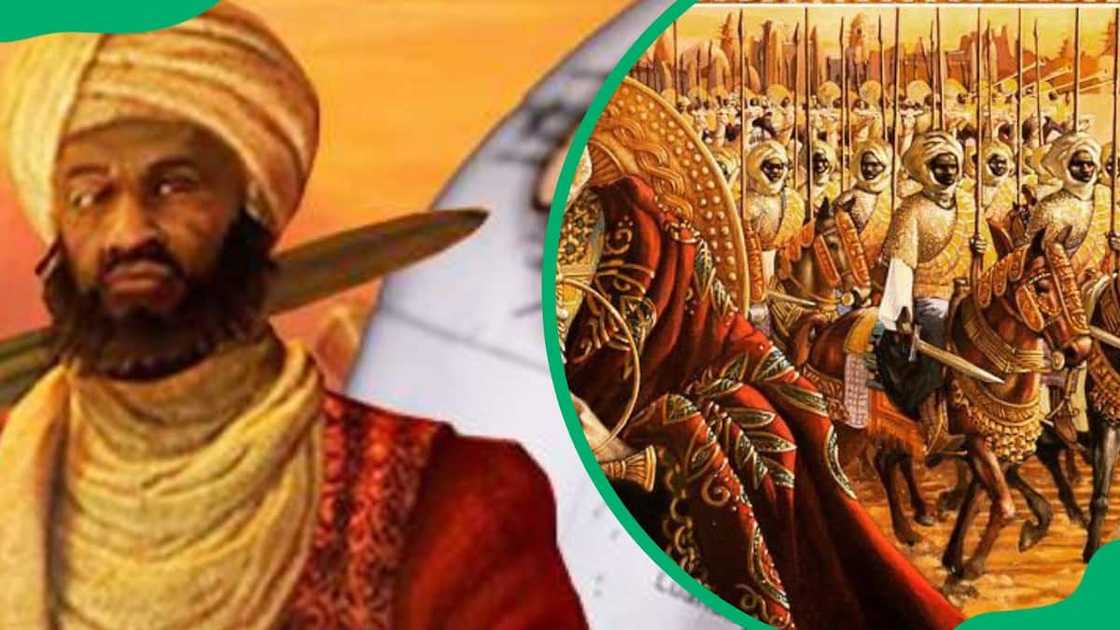
Source: UGC
Askia Muhammad 1 was one of the most famous African kings. He was the first ruler of the Askia dynasty of the Songhai Empire, reigning from 1493 to 1528.
Under his reign, the Songhai Empire encompassed the Hausa states as far as Kano (in present-day Northern Nigeria) and much of the territory that had belonged to the Songhai empire in the east.
7. Louis XIV
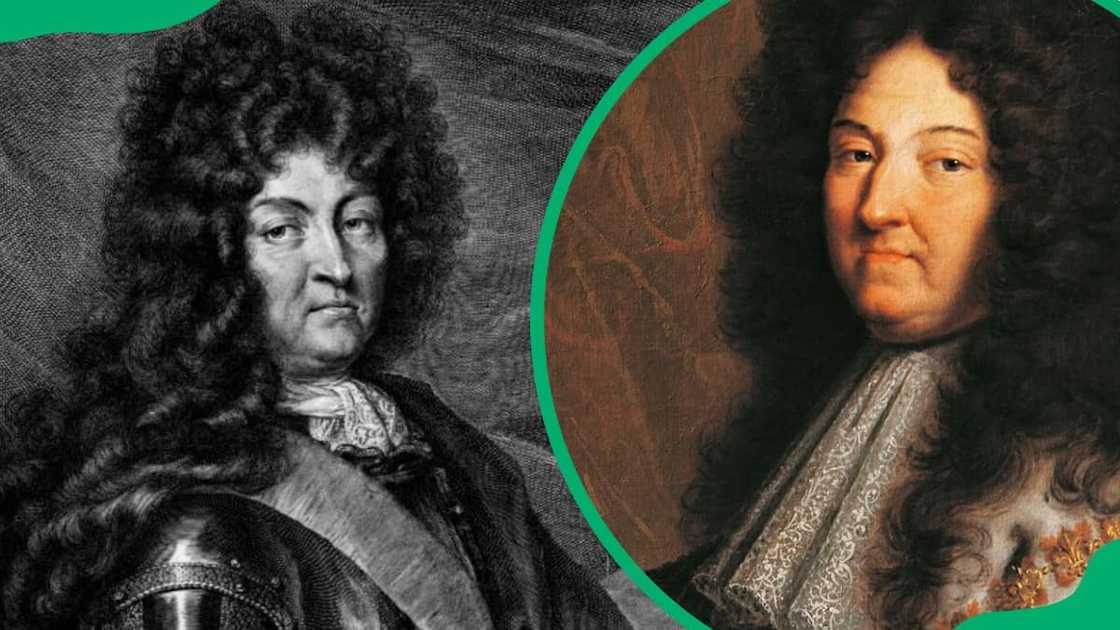
Source: UGC
Louis XIV was King of France from 1643 until his demise in 1715. His reign is considered the longest of any sovereign after ruling for 72 years and 110 days. He established religious uniformity under the Catholic Church.
During, Louis’ long reign, France was widely recognized as the leading European power, regularly asserting its military strength. His achievements significantly influenced the establishment of the French Academy of Sciences and the construction of the Canal du Midi.
8. Bayinnaung
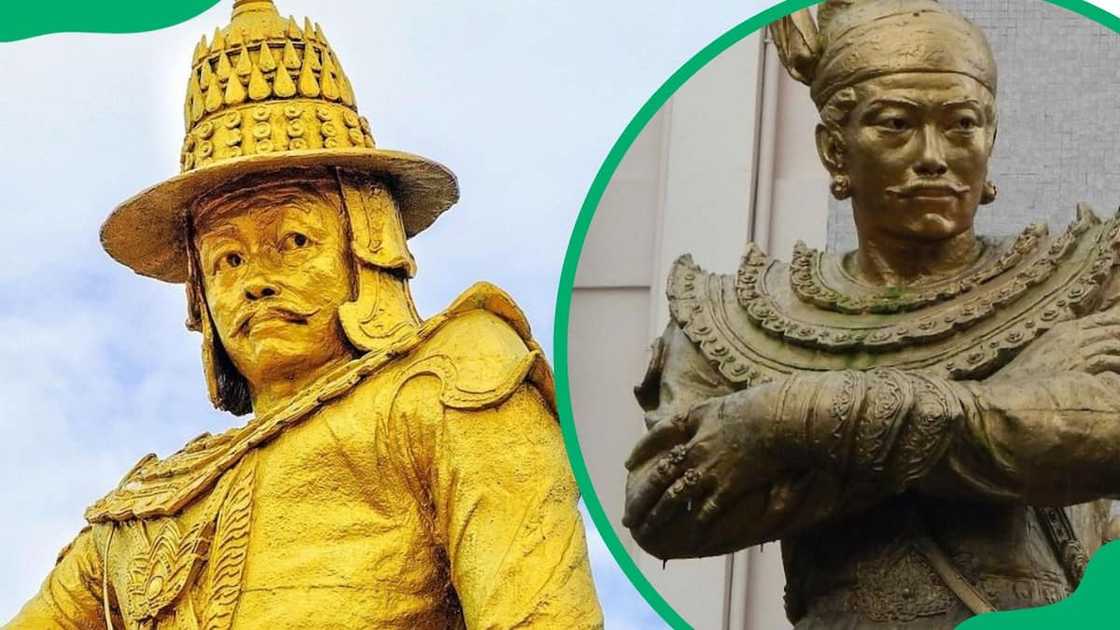
Source: UGC
Bayinnaung was the supreme ruler of the Toungoo Dynasty of Myanmar from 1550 to 1581. During his 31-year reign, which was termed the ‘’greatest explosion of human energy ever seen in Burma’’, he established powerful Southeast Asian empire in the ages, encompassing much of contemporary times Lan Na, Myanmar, Lan Xang, Siam and the Chinese Shan kingdoms.
Though he is best known for establishing empires, Bayinnaung's most significant contribution was incorporating Shan nations into Irrawaddy Valley-based kingdoms.
9. Antiochus III, the Great
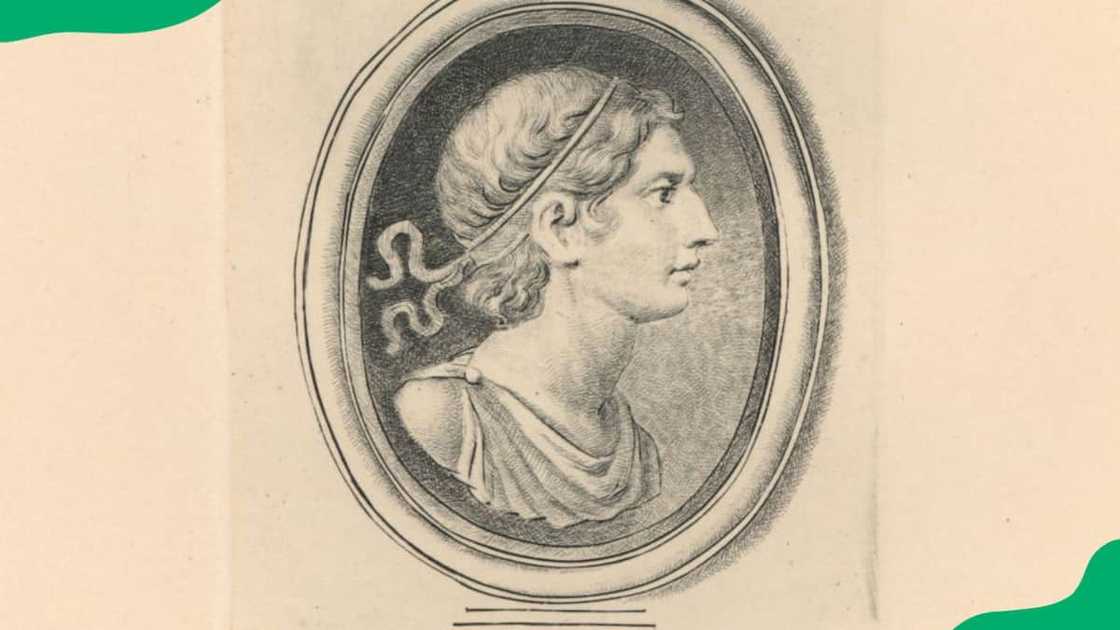
Source: UGC
Antiochus III, the Great was one of the most famous rulers. The Greek Hellenistic king was the 6th supreme ruler of the Seleucid Empire from 223 to 187 BC.
Although unsuccessful campaigns characterized his early reign, Antiochus expanded the empire’s territory in the following years. His traditional title, the Great, is based on his adopted appellation.
10. Alfonso III of Asturias
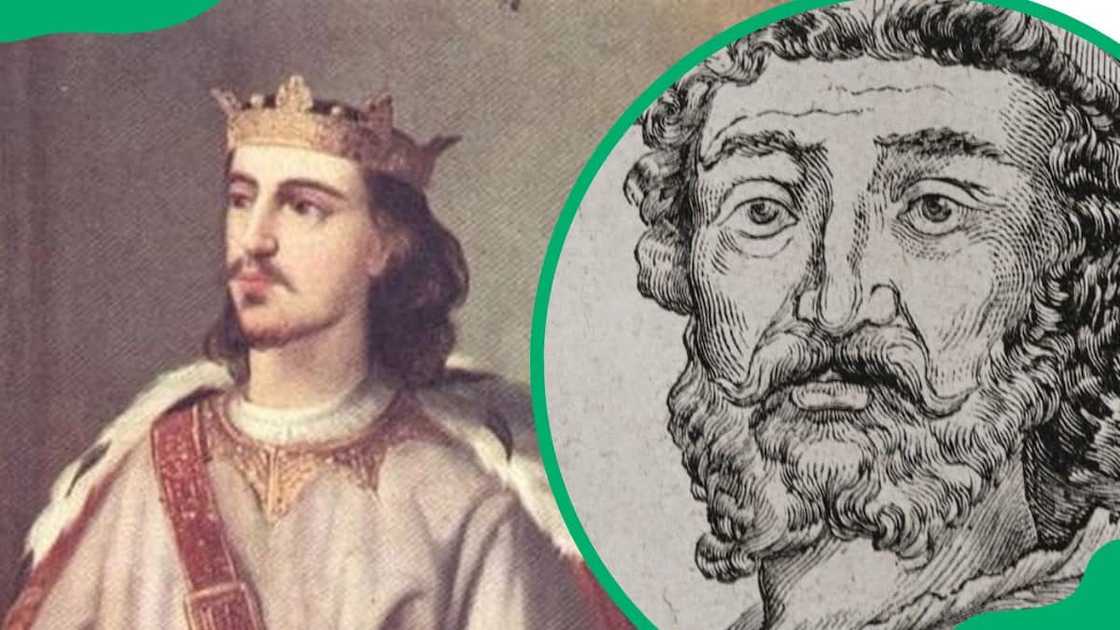
Source: UGC
Alfonso III of Asturias was the King of León, Galicia and Asturias from 866 until his death. Relative accomplishments in unifying the realm characterized his reign. Alfonso battled and defeated the Muslims of al-Andalus on multiple occasions.
Count Fruela of Galicia, a usurper, challenged him in the inaugural year of his rule. He was compelled to flee to Castile, but Fruela was killed after some months, and Alfonso returned to Oviedo.
11. King Edward III
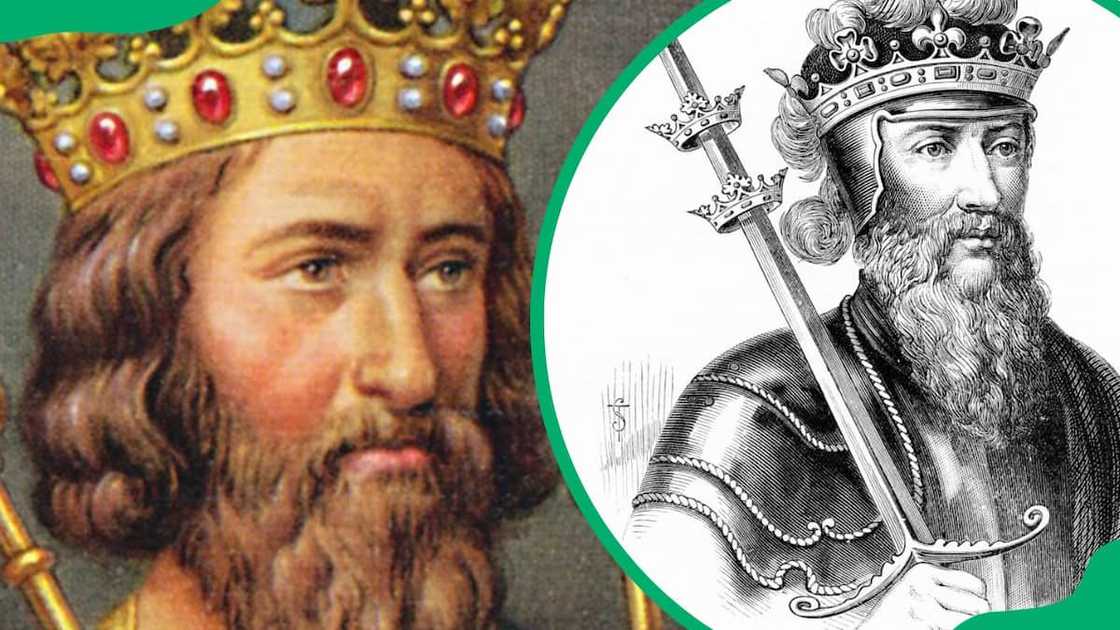
Source: UGC
Edward III ruled England from January 1327 till his death in 1377. He is popularly known for his military success and ability to restore royal authority after his father’s unorthodox reign.
Crowned at age fourteen, Edward III initiated legislation and government development, including the English Parliament's evolution.
12. Charlemagne
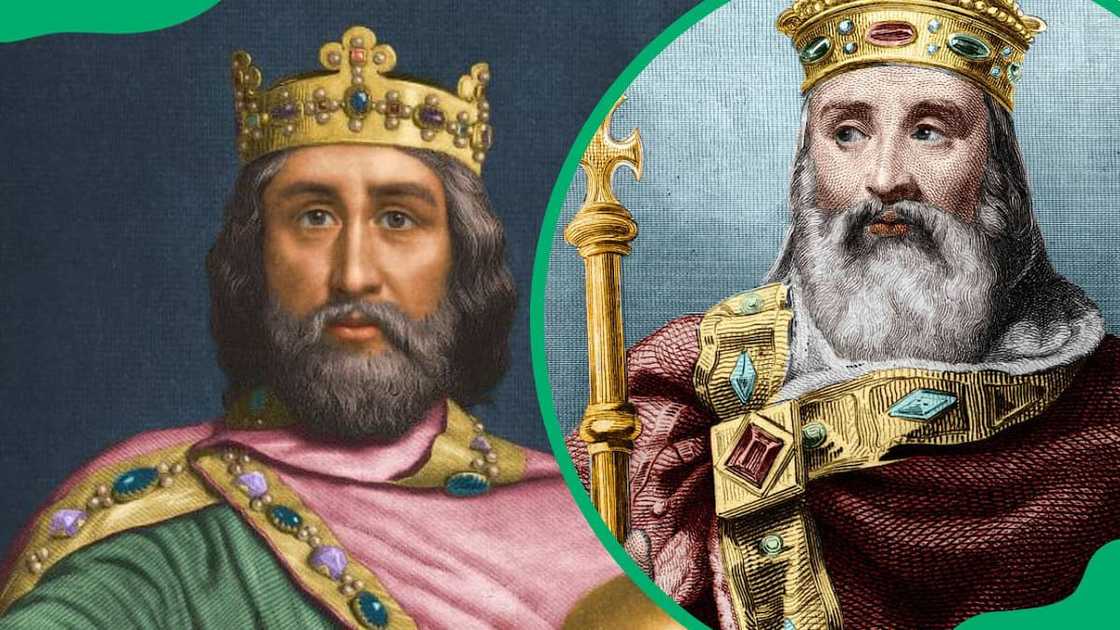
Source: UGC
Charlemagne was the King of the Franks from 768, King of the Lombards from 774, and Emperor from 800 until his demise. His profound impact on the Middle Ages and the influence on the vast territory he ruled has led to him being named the ‘’Father of Europe’’.
Charlemagne is perceived as a founding figure by multiple European states, and many historical royal houses of Europe trace their lineage back to him.
Its dry summers, which create a harsh environment during the hottest months, are a defining feature. The famous landscape, primarily found in southern Nevada and southeastern California, is home to nearly 2,000 unique plants, including the favourite Joshua trees only found in the Mohave. Why is Mojave so dry? According to Blue Planet Biomes, while some rain falls on the mountains, most of it is evaporated by the hot air before reaching the ground. The rain shadow effect causes the Mojave to be one of the world's driest landscapes.
Summary of the most famous kings in history
1. Alexander the Great
2. Bhumibol Adulyadej
3. Ramesses II
4. Alfred the Great
5. Abbas the Great
6. Askia Muhammad 1
7. Louis XIV
8. Bayinnaung
9. Antiochus III, the Great
10. Alfonso III of Asturias
11. King Edward III
12. King Charlemagne
Who are some of the most famous kings and queens of the world?
Some of the most famous kings and queens include Queen Elizabeth I, Charles I and Louis XIV.
Who are some of the most famous drag kings?
There have been numerous drag kings throughout history. They include Pepi Litman, E.L. Brown and Vesta Tilley.
The world’s famous kings have been impactful throughout history. Some conquered the territories, others ended warfare and brought their countries peace and stability, and others changed their nations and the world.
READ ALSO: Top 20 safest and most dangerous countries in Africa ranked
Briefly.co.za recently published an article ranking Africa's safest and most dangerous countries. Africa is a vast and diverse continent with 54 countries that vary in terms of safety and security.
While some countries are known for their peaceful and welcoming environments, others are known for their high crime rates and political unrest.
Source: Briefly News

